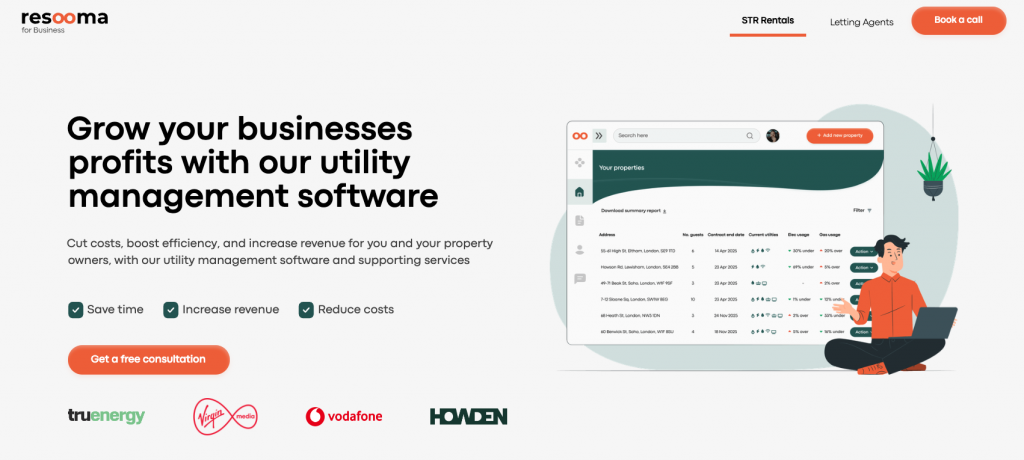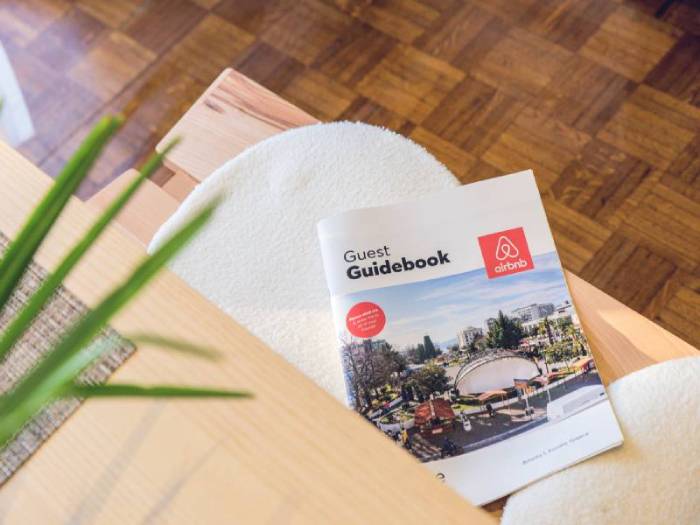 - minute read
- minute read
Working remotely has sky rocketed in recent years making life a lot easier for people. Managing AirBnB’s, short term lets and holiday rentals can be stressful and time consuming work, especially if you have a large portfolio of properties. In this blog post, we’ll provide tips so that you can manage an AirBnB remotely, helping you to live a stress-free life.
Navigate this article:
As an AirBnB host you’re main duty is to make sure your guests have a comfortable stay. Whilst this primarily involves providing acceptable sleeping and living areas, you must also know about any maintenance issues that may occur.
Living far away from your AirBnB or short-term let makes carrying out maintenance issues harder, and properties must be checked and cleaned before a new guest arrives, so hiring a local team of professional and reliable tradespeople is a must!
Consider hiring a local maintenance specialist who can fix any problems that may occur in the property. Using a professional cleaning company will also hugely help with the remote running of your AirBnB. Dedicated cleaning staff will clean up after the guests have left, and will make sure the next guests who arrive, have a clean and welcoming environment. Another useful vendor to have on your maintenance roster is an electrician. If anything happens to the power whilst your AirBnB is occupied, you’ll need an expert on hand to sort out any issues.
All in all hiring a good team of local staff is essential to running an AirBnB remotely.
Following on from hiring a professional team, you’ll need to manage said team in some way. Investing in a property management software will help you do this, and may also cover some of the other tips we mention below.
There are many different property management softwares available, so take the time to find the best one for you. We recently made a blog post all about the top five property management softwares available in the UK, so have a read of it for more information.
Automating your check-in and check-out systems is one of the easiest ways to manage an AirBnB remotely. You could install a key lock safe on the outside of your property, and send the code combination to the guest the day of the check-in. This way you don’t have to meet the guests in person and hand over the keys.
If you’re not a fan of lockboxes you could install a keypad onto the door. This will eliminate the need for a physical key, thus reducing the risk of the key getting lost. Just like with the lockbox, you can send the code for the keypad to the guest on the day of check-in.
Similar to keypads, smart locks reduce the need for a physical key. Using a designated app on the guests phone, they can unlock the door to your AirBnB. Smart lock apps can also change the code after a guests stays, reducing the risk of a guest staying longer, or returning after check-out.

Managing multiple AirBnB properties remotely can make bill paying time consuming and complex. Using a bill management service like Resooma can help consolidate the bills across your entire portfolio, and condense them down into one single digital monthly payment. This reduces the stress of having to keep track of multiple energy accounts and the energy used in each property.
Resooma will install smart meters into all of your AirBnB’s, so that monthly meter readings become automated and are more accurate. No need to go to property to take manual meter readings anymore. Resooma can also provide better WiFi infrastructure into your properties, which will mitigate the risk of receiving negative reviews due to poor WiFi connection.
To find out more about how Resooma can help your business, click here.

Creating a guest handbook can help reduce the amount of queries you may receive from guests. The handbook should include all the necessary and important information guests may require during their stay. This could be user manuals for electrical and kitchen appliances, the WiFi password and a reminder of the check-in and check-out procedures. To go the extra mile and get that 5 star review, it could be beneficial to include local hotspots for dining, fun things to see and do, and helpful information about local public transport links. Placing the guestbook in an easy-to-reach and convenient location, like on a coffee table or kitchen countertop, will help the guests to spot it when they arrive.

Streamlining guest communication can greatly improve customer satisfaction. Save yourself time and set up automatic messages to your guests. Communication starts as soon as a guests makes a reservation, and being quick to respond is always a good thing. Third party sites allow you to set up automated messages. Sending one at the reservation stage is a lovely touch, but sending one on the day of check-in is a must! It might be handy to send a digitised version of the guest handbook we mentioned above.
Whilst automatic messages are helpful, you should still manually check and respond to messages incase your guests have any emergencies.
Remote AirBnB hosts may find it difficult to keep track of pricing in the area of their property. This is where dynamic pricing comes in! Dynamic pricing enables you to set AirBnB pricing rules, and by using a third party company, or a property management software, you can significantly reduce your workload.
If you are still wary of automated systems, you could hire a local co-host. AirBnB now offers other hosts the chance to become your co-host. This involves hiring an experienced host, who lives local to your AirBnB, who can be a friendly face to your guests. They will help with any questions or problems that your guests may encounter during their stay. Other support co-hosts can offer include cleaning duties, greeting guests at check-in and full-service property management. To find out more about AirBnB co-hosts, click here.
In summary, managing an AirBnB remotely can greatly reduce the stress that comes with organising holiday rentals. Some initial costs may be involved in the short term, but the long term benefits certainly outweigh them, and may even result in a higher income for you too!



All your utility bills in one monthly payment, split between housemates
Get a quote


All your utility bills in one monthly payment, split between housemates
Get a quoteFinding his article helpful? We’ve got plenty more helpful articles on there way. Join our Savvy Sunday mailing list